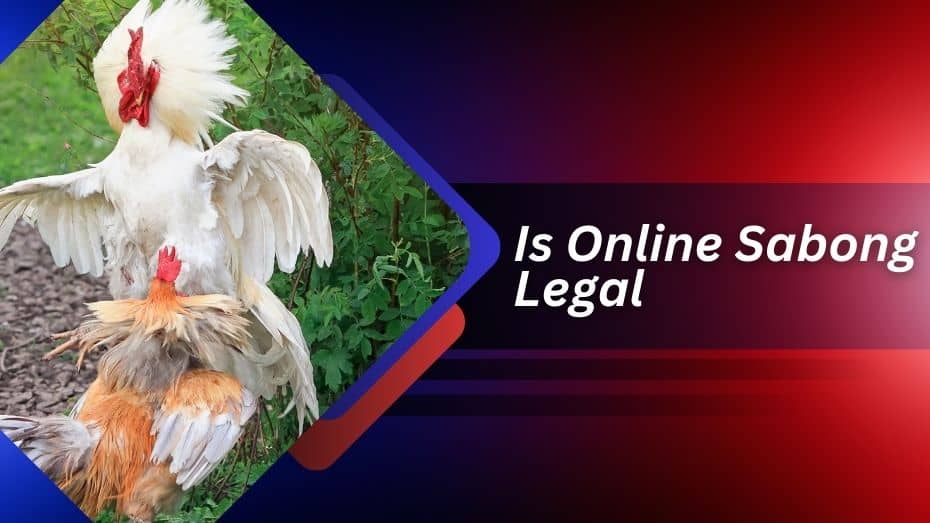Find Answers to the Biggest Question in Sabong in the PH

Is online sabong legal? Find out here at Sabong Philippine.
In the Philippines, sabong, or cockfighting, has deep cultural roots and has been a traditional pastime for centuries. With the advent of technology, online sabong has gained popularity, enabling enthusiasts to participate in this age-old tradition from the comfort of their homes.
However, the legality of online sabong in the Philippines has been a subject of debate and scrutiny in a governmental level. But among the people, this can be seen to flourish as many see it not just a past time but their bread and butter or a profitable way to help pay bills and bring food to their table.
Let us delve deeper into the legal landscape surrounding online sabong, exploring the regulations, controversies, and potential impacts on both the traditional cockpit arena and the digital sphere. Together, let us answer the question “is online sabong legal?”
Is Online Sabong Legal? The Cultural Context
Sabong has long been a significant part of Filipino culture, reflecting a mix of history, tradition, and social bonding. The Philippines has recognized the cultural and economic importance of cockfighting, allowing regulated and licensed cockpits to operate across the country. However, the rise of online sabong has presented new challenges and opportunities for the regulatory framework.
Is onliensabong legal? Well, the legal status of online sabong in the Philippines is primarily governed by Presidential Decree No. 449, also known as the Cockfighting Law of 1974. This decree provides the legal framework for cockfighting activities in the country, emphasizing the importance of regulating and supervising the conduct of sabong events.
As technology evolved, the need to address online sabong became apparent. In 2012, the Philippine Amusement and Gaming Corporation (PAGCOR) issued a memorandum circular regulating online cockfighting. This circular established guidelines for operators and participants in online sabong, ensuring that the activity remains within legal boundaries.
Sabong amid the COVID-19 Pandemic
The Philippines, like many countries, implemented strict measures to curb the spread of the virus. These measures included lockdowns, social distancing protocols, and limitations on public gatherings – all of which had a profound impact on cockfighting activities. Cockpits, once bustling with enthusiasts and spectators, fell silent as restrictions rendered gatherings unsafe and illegal.
Despite the challenges, cockfighting aficionados found ways to keep the tradition alive. Some turned to online platforms like Sabong Philippine, Pitmasters Live, and many more in organizing virtual cockfights where enthusiasts could watch and place bets remotely. While these virtual matches provided a temporary solution, they couldn’t fully replicate the experience of being in a cockpit, feeling the excitement, and camaraderie that comes with it.
Challenges and Solutions
Furthermore, the pandemic exacerbated existing issues within the cockfighting industry. Many breeders and cockfighting enthusiasts faced financial hardships as the closure of cockpits and restrictions on movement disrupted their livelihoods. For rural communities heavily reliant on sabong-related activities, the economic repercussions were particularly severe.
Government responses to the pandemic further complicated the situation. While some local governments imposed strict bans on cockfighting activities, others opted for more lenient measures, allowing cockpits to operate with limited capacity and safety protocols in place. This patchwork of regulations created confusion and inconsistency across different regions, adding to the challenges faced by cockfighting enthusiasts and stakeholders.
The pandemic also highlighted the need for regulation and modernization within the cockfighting industry. Calls for stricter enforcement of animal welfare laws gained momentum, with advocates pushing for reforms to ensure the humane treatment of gamecocks. Additionally, there were discussions about the potential of integrating technology into cockfighting practices, such as implementing online betting platforms and livestreaming events to reach a wider audience.
As the world continues to grapple with the effects of the COVID-19 pandemic, the future of cockfighting in the Philippines remains uncertain. While the tradition has shown resilience in adapting to changing circumstances, it faces ongoing challenges in navigating the complexities of public health concerns, economic pressures, and regulatory frameworks.
Ultimately, the status of cockfighting in the Philippines during the COVID-19 pandemic reflects the broader tensions between tradition and modernity, cultural heritage, and public health priorities. As stakeholders continue to seek a balance between preserving tradition and ensuring the safety and welfare of both humans and animals, the fate of sabong hangs in the balance, awaiting a resolution that respects its cultural significance while addressing the realities of the present moment.
Controversies and Challenges
Despite the regulatory efforts, online sabong has faced its fair share of controversies. One of the main concerns is the potential for unregulated and illegal operations, leading to issues such as the following:
- fraud,
- money laundering, and
- underage participation.
Critics argue that online sabong platforms might provide an avenue for illegal activities to thrive beyond the reach of authorities.
Furthermore, some traditionalists worry that the rise of online sabong could lead to the decline of the physical cockpit arenas. These arenas have long been hubs for community gatherings and social interactions, and the shift to the digital space raises questions about the preservation of these cultural spaces.
Impact on the Cockpit Arena
The coexistence of traditional cockfighting and online sabong has sparked discussions about the future of the cockpit arena. While online sabong offers convenience and accessibility, many argue that it cannot fully replace the unique experience of attending a live cockfighting event. Which is why cockpit arenas remain cultural landmarks and are essential for preserving the rich heritage of sabong in many places in the Philippines.
FAQs
What is one disadvantage to online sabong?
Connectivity issue: Poor internet connection can disrupt the livestreaming of matches and affect the user experience.
Are there age restrictions for participating in online sabong?
Users are typically required to be of legal age (18 years or older) to participate in betting activities on online sabong platforms.
How can I ensure the safety and fairness of online sabong?
When participating in online sabong, look for platforms that prioritize transparency, fair play, and responsible gambling practices.
Conclusion:
The legality of online sabong in the Philippines is a complex issue that requires a delicate balance between preserving cultural traditions and adapting to the digital age. The regulatory framework established by PAGCOR aims to ensure the responsible conduct of online cockfighting, but challenges persist. As the country navigates the evolving landscape of sabong, it is essential to strike a harmonious balance that respects tradition while embracing the opportunities presented by technological advancements.









